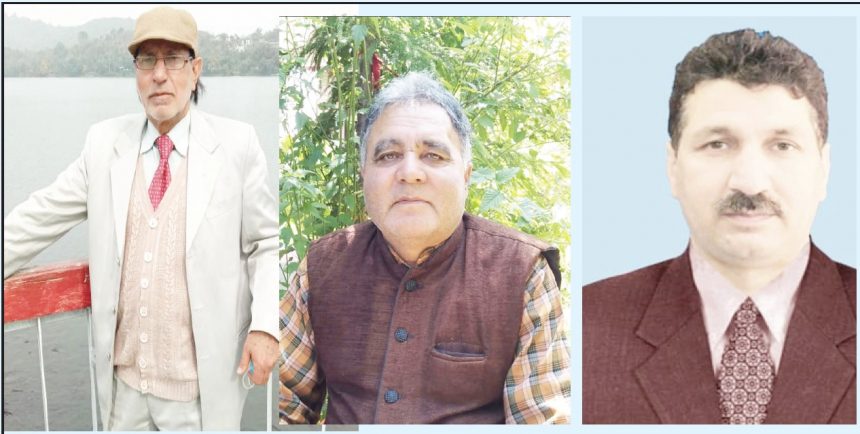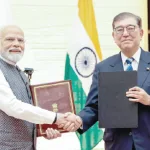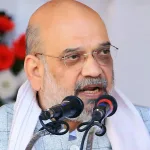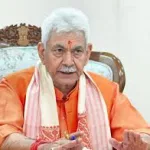Srinagar, April 12: Tilgam village in Baramulla district is widely known as the ‘village of poets’ across Kashmir Valley, as it has been home to dozens of acclaimed poets for generations.
Situated in Pattan tehsil, around 38 kilometers from Srinagar and just 5 kilometers from the Srinagar-Baramulla highway via Hydberbeigh, Tilgam holds a unique place in Kashmir’s cultural and literary landscape.
According to historians, Tilgam has had historical significance for centuries, with its mention in Tareekh-e-Hassan.The village was known as a “Pargan”, a term referring to its role as a commercial hub for the surrounding areas.
Prominent author and poet, Ranjoor Tilgami, believes the name “Tilgam” originates from the famous Hindu king Tilak Raj, who once ruled the area when it served as a central point for nearby settlements.
“Over the years, ancient artifacts like coins from old kingdoms, utensils, clay sculptures, and water pipes made of clay were discovered here,” Ranjoor shared.
Ranjoor said Tilgam is famously referred to as the ‘village of poets’ because it has produced legendary literary figures in the past, and the current generation continues to uphold the tradition.
“Over the past 100 years, this soil has nurtured poets like Shahi-e-Ibrahim, Fatah Kral, and many others. Their work remains relevant even today,” he said.
Ranjoor, a retired lecturer from the education department, began writing poetry in 1966. Over the decades, he has authored several notable books including *Kalaam Ranjoor*, *Noor-e-Irfan*, and *Be-Dimini-Waqtas Thami Gasneh*, among others.
“Many more books are currently under process,” he added. Notably, *Noor-e-Irfan* is regarded as a pioneering work in the Kashmiri language, exploring the unseen corners of human existence.
However, Ranjoor expressed concern over Tilgam’s current state, saying the village is now one of the most neglected in terms of road connectivity and basic infrastructure.
In a message to the youth, he said, “They must not forget their roots, culture, and language. Writing and reading about Kashmiri literature is vital.”
Ali Mohammad Mir, known by his pen name Fayaz Tilgami, is another iconic figure from the village. A respected poet and author from north Kashmir, Fayaz has made immense contributions to the Kashmiri language and literature.
Speaking to Rising Kashmir, Fayaz said he was drawn to reading and writing from a young age. He has been associated with Adbee Markaz Kamraz (AMK), the oldest and largest cultural and literary organization in J&K, for more than 48 years.
He has authored eight books, with 3–4 more in the pipeline, expected to be published in the coming months.
“During my childhood, newspapers like Akbar-e-Khidmat*used to arrive at our Panchayat Ghar. I would read the columns of renowned writers and poets, which deeply inspired me,” he said.
Fayaz completed his 8th grade in the village and later joined High School Kreeri (now Higher Secondary School), where he met Manzoor Hashmi, a Urdu teacher who became his mentor.
At the age of 17, Fayaz began writing articles and poems for *Akbar-e-Khidmat*. His work was regularly published in the Sunday editions, earning him widespread appreciation.
“My poetry got me a job in the education department. Eminent scholar Prof. Mohi-ud-Din Hajini read one of my poems in the paper and recommended my name for appointment,” he said.
Fayaz’s literary journey includes landmark works like Fatah Kral(1973), Ghaashi-Taruq (1984), Lajawaab, Kulyaati Razaq Dar,Nishat Ansar Monologue,Prazan Vini Taruk, Kamraazik-Gumnam Shayeir, and Han Han Talaash
Due to financial challenges, some of his upcoming books are yet to be published. These include Haraf Haraf Chu Naat Khaan the second edition of Kariv Aalov Hussainus, and a children’s special titled Asi Chi Pagheek Pasbaan.
Fayaz, also the president of Bahar-I-Adab Tilgam, has contributed to All India Radio Srinagar (formerly Radio Kashmir) and Doordarshan. His contributions have earned him several prestigious awards.
He also received a fellowship from the Ministry of Culture, during which he compiled a poetry collection from 20 poets of north Kashmir.
“Our village has produced poets across generations — from the 19th-century legends like Shahi-Ibrahim and Fateh Kral to today’s emerging voices,” Fayaz said.
“Ancient names of places like Gamud, Kalwal, and Malhar,all rooted in Sanskrit, still echo Tilgam’s glorious past.”
Another literary stalwart from the village is Abdul Majeed Mir, popularly known as Shabnum Tilgami. He currently serves as General Secretary of AMK and is also an approved drama artist, actor, and poet with Radio Kashmir Srinagar and Doordarshan.
“I was in the second year of college when my first drama was broadcast on the radio under the mentorship of Nayeema Ahmad Majoor,” he said.
Currently working in the Department of Education, Mir has authored numerous poems, short stories, and dramas. He has translated Gitanjali by Rabindranath Tagore into Kashmiri and is set to release his Kashmiri translation of R.K. Narayan’s The Guide.
“I haven’t yet published a standalone poetry book, but my works have been featured in many regional and national publications,” he said.
He also writes editorials for Bahar-e-Adab Tilgam’s annual magazine and was the founding president of the organization for its first five years.
“I received India’s highest literary translation award from Sahitya Akademi in 2022 for Gitanjali. In 2024, the Akademi also published my translation of The Guide,” he added.
Tilgam continues to serve as fertile ground for aspiring poets. Contemporary writers such as Basharat Hafeez, Khalid Bashir Tilgami, Dr. Syed Mohammad Amin Tabish, Showkat Tilgami, Mir Faraz, and Mir Musavir are keeping the literary spirit alive.
Among them, Showkat Tilgami said the elders of the village have always been a source of inspiration. “Their dedication to culture and literature has guided our path,” he said.
“I have completed my first book, and it has already been approved by the Cultural Academy, though not yet published. We will continue to express our thoughts and preserve our heritage through this age-old platform,” he added.








